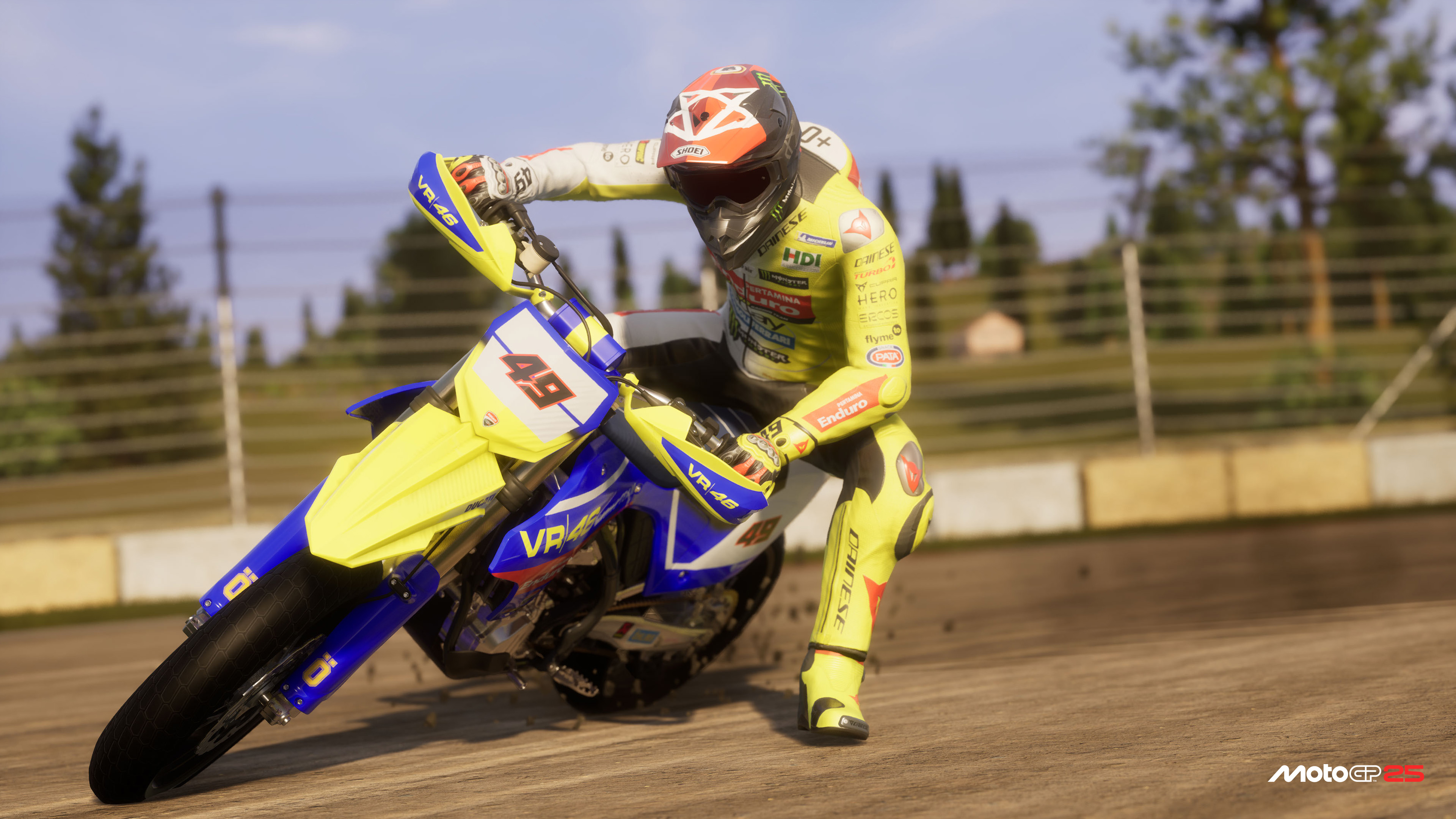TechRadar Verdict
This series has been veering towards an increasingly hardcore audience lately, so the addition of arcade handling is a welcome option in Moto GP 25. There are tweaks to be made in post-release patches, most notably AI difficulty in arcade mode, and the flat track, but the handling, visuals and authentic touches keep this essential for MotoGP fans and well worth a look for a broader audience of racing gamers.
Pros
- +
In-depth career mode
- +
Impressively realistic handling in either arcade or pro mode
- +
Authenticity in every detail
Cons
- -
AI is too easy in arcade mode
- -
Training events are a side show
- -
Still no return of the historic bikes
Why you can trust TechRadar
Have you played the MotoGP series lately? Challenging, isn’t it? Nobody’s gone this deep into sim territory in bike racers as Milestone’s recent releases, and while direction has served a hardcore nucleus of players willing to master the extremely nuanced inputs required to stop the bike without being launched into orbit, MotoGP 23 and 24 were a tough sell to newcomers and racing fans looking for something they could pick up and play.
Platform reviewed: PC
Available on: PC, PS5, PS4, Xbox Series X and Series S, Xbox One, Nintendo Switch
Release Date: April 30, 2025
Enter MotoGP 25 and its bushel of new features, including a new arcade handling mode that finds a pleasing halfway point between the ultra-demanding, ultra-gratifying sim handling of recent iterations and a more approachable take.
The bike still feels potent, twitchy and dangerous – it’s just that you can absolutely launch it down the inside of your opponents now and brake well into the apex, without tucking the front and pressing the rewind button for the 70th time this lap.
Easy rider
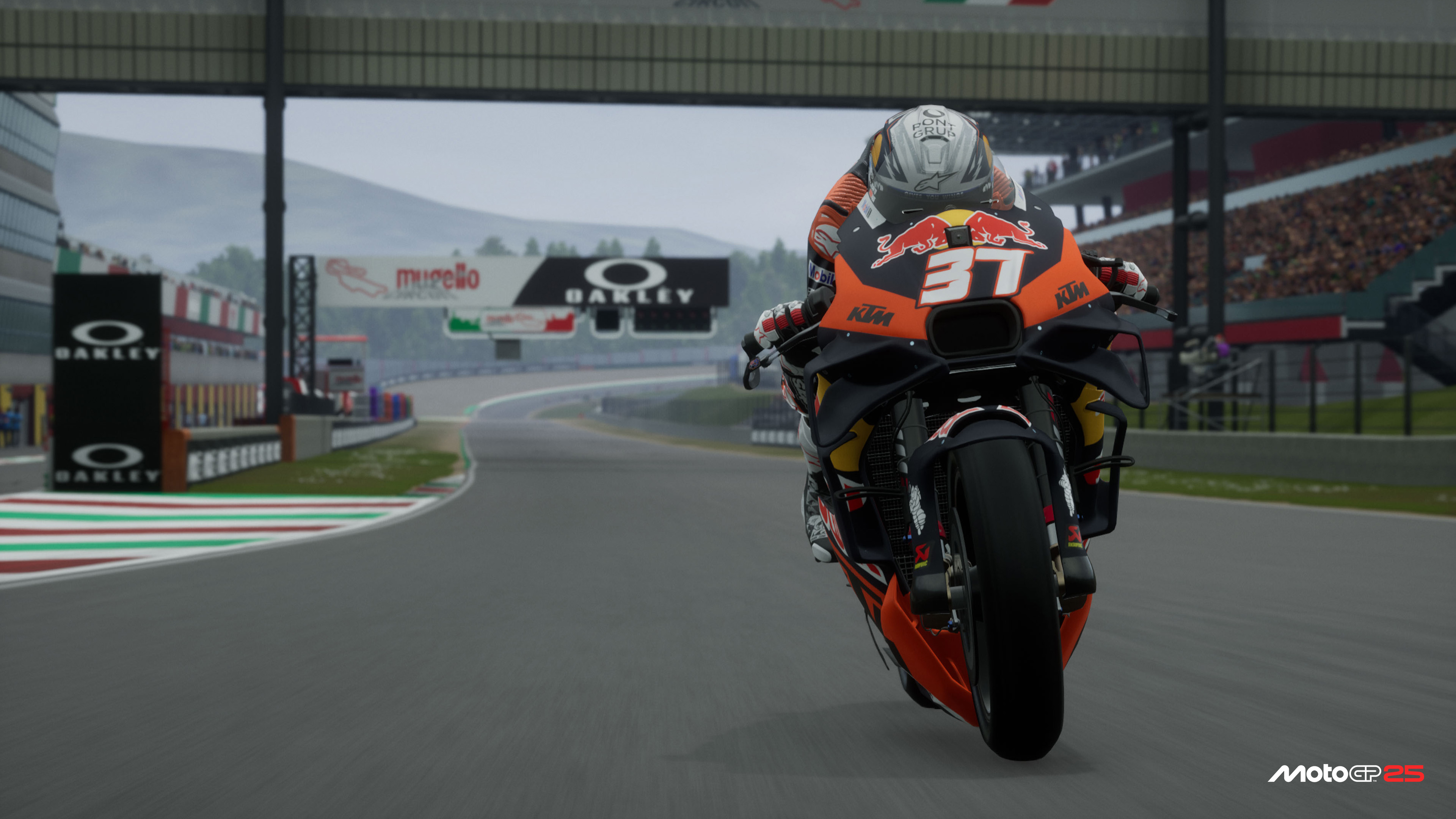
As someone who (semi) mastered the sim handling in MotoGP 24, I was surprised how much of a draw the arcade handling is.
Far from feeling watered down, or like the bike’s riding itself, like the feeling you get when you use the neural aids, this mode just feels like you’ve got an incredible set of tires on. You can turn in more sharply than other riders, get on the power earlier, brake that little bit later. And that means I don’t have to do every practice session before a grand prix in order to find the pace. I can just launch into the race.
However, I do miss a few elements of the ‘pro’ mode, like bike setup and tire choice options. I can see why Milestone would remove these on paper, since having more variables to fiddle with might seem overwhelming to a newcomer. But it’d be nice to be able to turn them back on again if you want them.
There’s another drawback to arcade mode: the AI opponents are way too easy. I wouldn’t dream of racing against 120% AI in the last game, but this time in arcade mode I whizz past them like a rocket-propelled Valentino Rossi weaving past little kids on scooters. I’m not sure if it’s a feature or a bug, but I want more challenge.
Sign up for breaking news, reviews, opinion, top tech deals, and more.
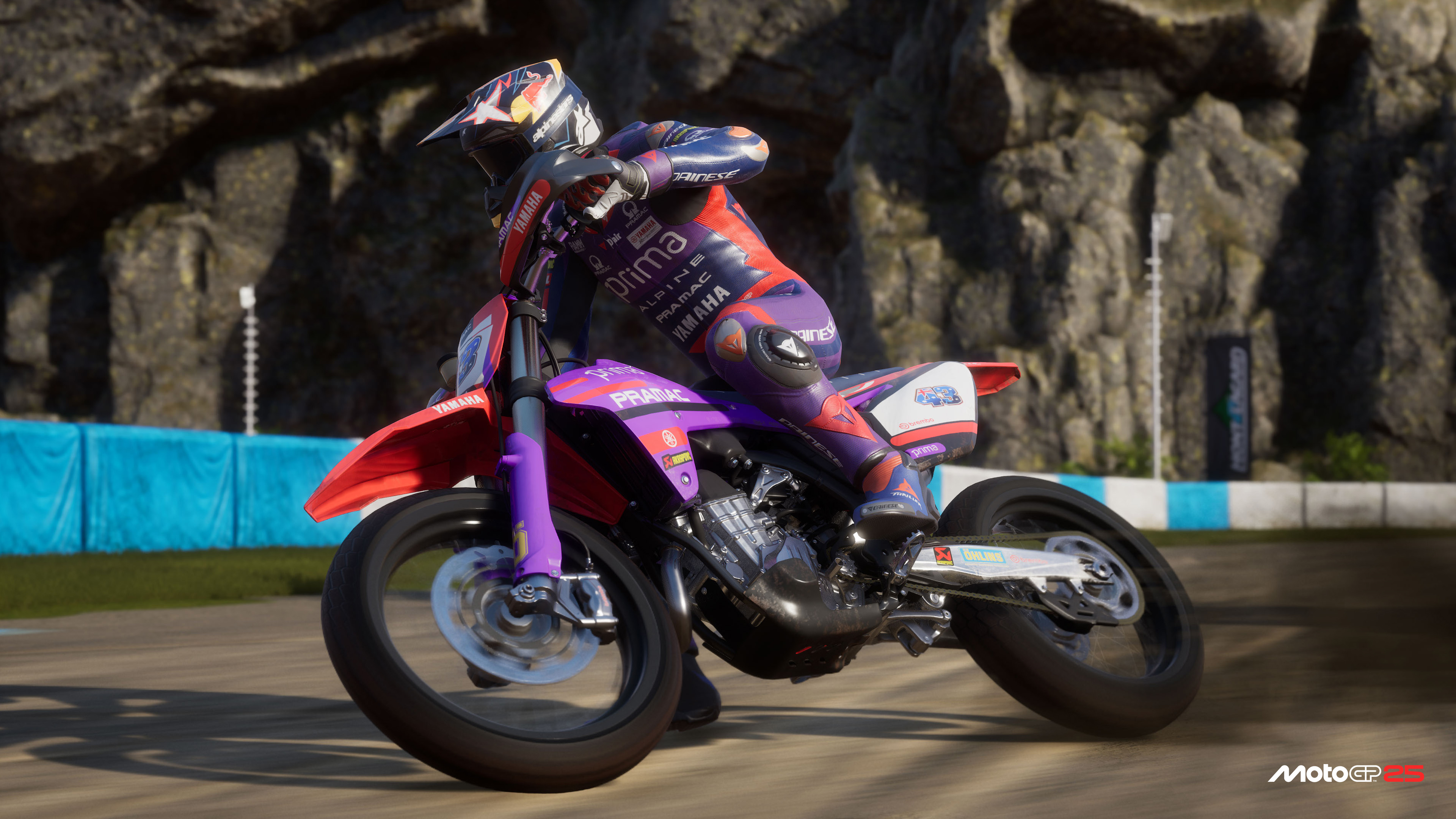
Working your way up from the junior categories is a joy in this game that even EA F1 doesn’t have a direct answer to. Moto 3 and Moto 2 bikes each handle according to their own physics, but the sense of accomplishment you get from doing well enough in those categories to get a MotoGP contract is a real high.
Over to pro handling, then. It’s definitely received some tweaks since the last game, and in general the bike seems more compliant, particularly under braking. I found I could get away with braking harder for longer into corners without washing out, and the ride height device seems to activate and deactivate in a smoother way in and out of corners, making it slightly easier to maintain a flow and carry more corner speed.
It’s still incredibly demanding, and ultimately incredibly gratifying. And it’s still probably too much to ask of most players, which is why it’s a really big deal that the arcade handling option feels so good. A minor point, though: tire choices still feel a bit arbitrary. I picked a soft front and rear in every dry race of my four-season career in Moto 3, Moto 2 and MotoGP categories, and never had a reason to do otherwise.
Flat track friends
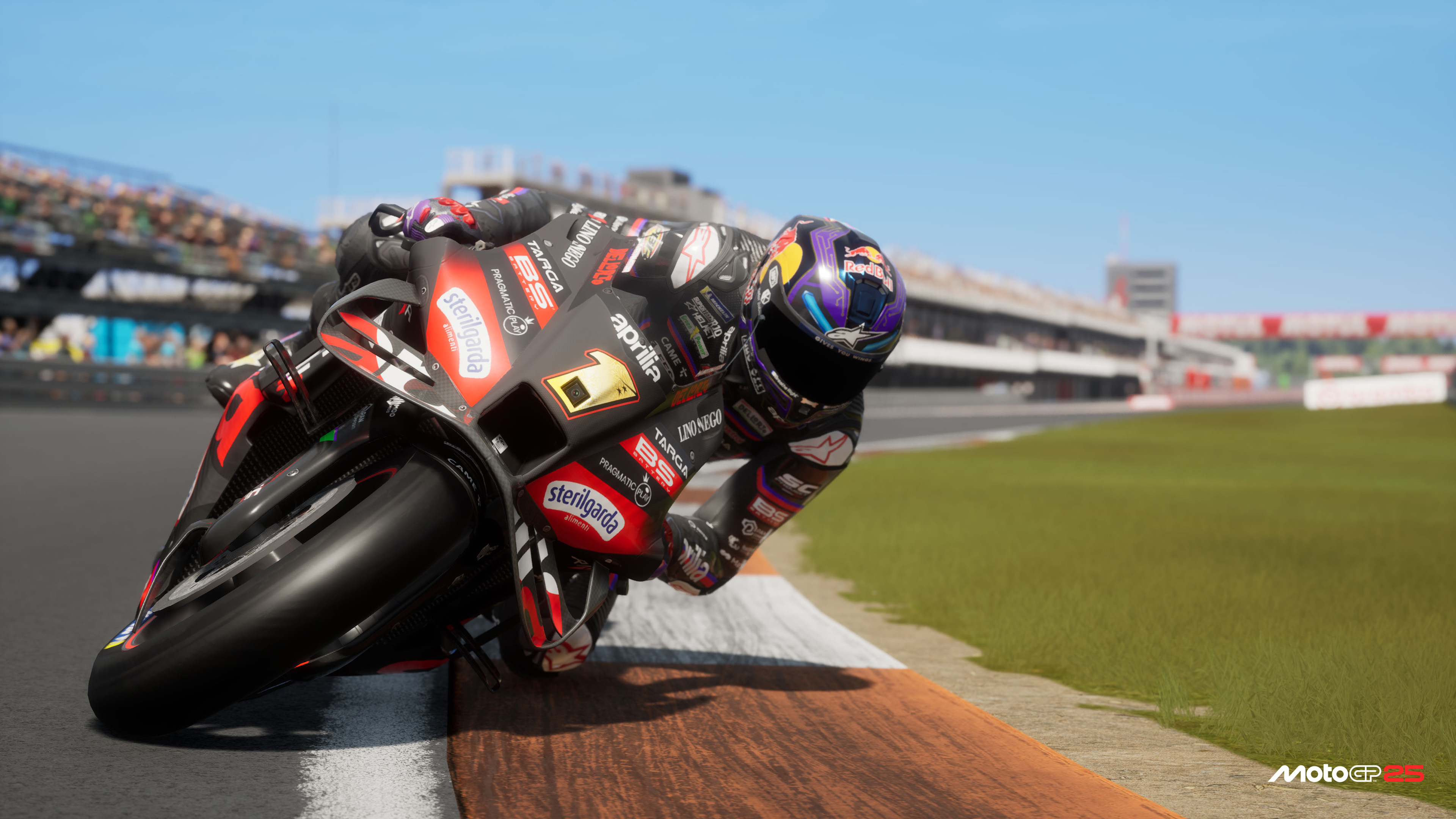
Whichever mode you choose, the new additions to career mode prove a compelling draw. Top of the billing here are the training events, in which a rider from the roster of real competitors invites you to race minibikes, flat track or motard between race calendar rounds.
The gameplay benefits are twofold: you raise your rider fitness level to increase performance (though I’ve still no idea how this actually manifests and whether it just makes your lap times quicker) and boosts your relationships with the riders you train with. So if you want to land a factory Ducati ride one day, accepting all of Marc Marquez’s invites to go racing between rounds is a good way to improve your chances.
It’s also a thoughtful way of reflecting the real sport. Riders increasingly train together in cliques in modern MotoGP, so there’s an extra degree of immersion to getting out there onto the new tracks (four layouts over two locations) and cutting some sick lines with your paddock pals.
All three disciplines handle convincingly and are bolstered by bespoke new animations, and outside of career mode you can set up events using these bikes in the Race Off mode as solo or PvP events. Personally I didn’t feel especially compelled to master any of them. As a career mode mainliner, these training events were a means to an end, but a welcome addition.
What’s another year
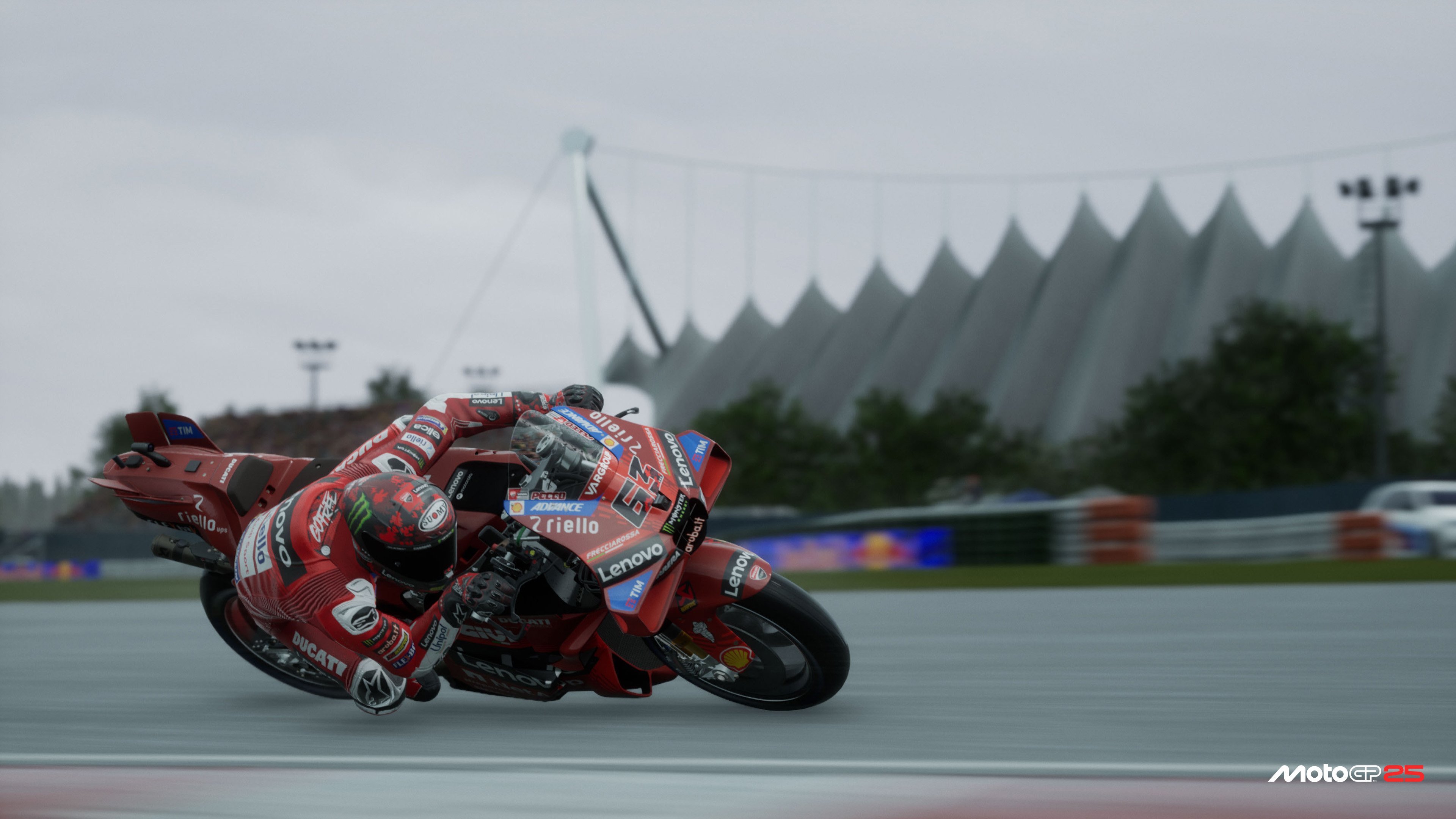
In terms of presentation, the game’s shifted over to Unreal Engine 5 and upgraded its audio by capturing sound directly from the 2024 bikes as they were raced on the track. I don’t notice a huge jump forwards visually that one might associate with an engine upgrade, but MotoGP was already a looker in the first place.
I do notice some newfound fidelity in the sound though, both in differentiating between manufacturer engine noises, and some additional pops and rumbles.
Further down the order, there’s a revamped bike development system which allows you to dictate exactly what area of the bike your team focuses on, and that’s been tied more closely to the career mode objectives that set rivalries with different opponents. For example, when given the choice of trying to beat one of three different riders as your next objective, one might boost your reputation, another might boost your bike development, and another will raise your relationship with a specific rider.
Time to pose the question that every annualised release must ultimately face: does it do enough to extract another full-price purchase from your wallet? To my mind as a series veteran who puts 100+ hours into every game, every year… Just barely, yes.
And I’m surprised to find that it’s the arcade handling, as much as anything else, that leads me to that decision. Not only do I find it a refreshing change for myself, it’s also an easier sell to my friends. The online community has always been smaller in this game than in contemporaries like EA’s F1 series or Assetto Corsa Competizione, so getting into an online race whenever I like isn’t a given. Opening the gates to a broader audience can’t be a bad thing.
However, I still feel the absence of historical bikes and riders, as we saw four games ago now in that superlative ‘Nine’ mode, and I still feel short-changed by the same old gloves, boots and leathers, with very limited colour customisation. There are more options in this game, but I want to be able to apply custom designs to them like I can with helmets, not just change their colour.
A close win is still a win. MotoGP 25 is headed in the right direction, and it can’t be easy to add the volume of content it’s added in less than twelve months. Maybe I’ll skip a year soon, but for now, I’m back in the title hunt.
Should I play MotoGP 25?
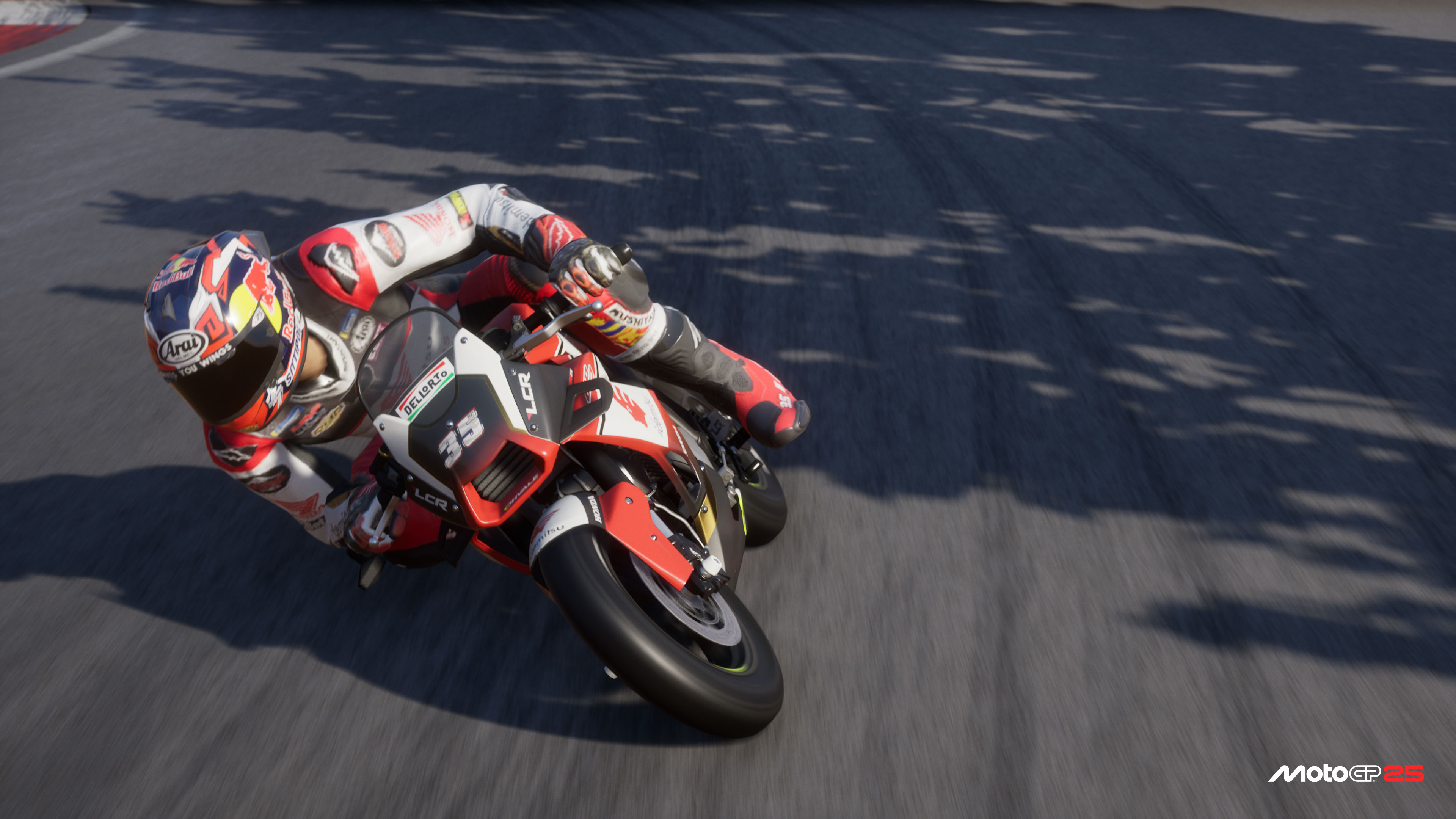
Play it if…
You follow the real sport
There are so many authentic touches here, from the broadcast sound effects when a rider crashes to the inclusion of Moto 2 and Moto 3 categories
You’ve been put off by the handling before~
Pro mode still exists and is still a handful, but the new arcade physics is a much more accessible option
You’re already tired of watching Marquez win every race
There’s only one thing for it. Save us all from another 2019 and start winning some races.
Don’t play it if…
You want Crazy Taxi levels of arcade handling
At its heart this is still a sim, so be prepared to have to spend some time mastering the handling
You’re fatigued by spending too many hours in MotoGP 24
If you burned out on the last game, there’s probably not enough to revive your interest. Skip a year then check back in.
Accessibility
There’s a decent range of options in the game for adjusting subtitles to maximise visibility, and 10 different languages available.
A colour blindness filter has been added, with the additional option of adjusting the filter intensity. On the audio side there’s a tinnitus reduction filter with individual frequency adjustment.
How I reviewed MotoGP 25
I played 30 hours of MotoGP 25 on PC, using an Xbox Elite controller. That time’s been split evenly between arcade and pro modes, using manual gearing and all assists disabled in either mode.
Career mode has accounted for most of those hours, where I worked up from Moto 3 to the big bikes, like I do every year. I’ve also tried ranked and unranked online PvP, and individual Race Off events.
First reviewed May 2025

Ad creative by day, wandering mystic of 90s gaming folklore by moonlight, freelance contributor Phil started writing about games during the late Byzantine Empire era. Since then he’s picked up bylines for The Guardian, Rolling Stone, IGN, USA Today, Eurogamer, PC Gamer, VG247, Edge, Gazetta Dello Sport, Computerbild, Rock Paper Shotgun, Official PlayStation Magazine, Official Xbox Magaine, CVG, Games Master, TrustedReviews, Green Man Gaming, and a few others but he doesn’t want to bore you with too many. Won a GMA once.
You must confirm your public display name before commenting
Please logout and then login again, you will then be prompted to enter your display name.
